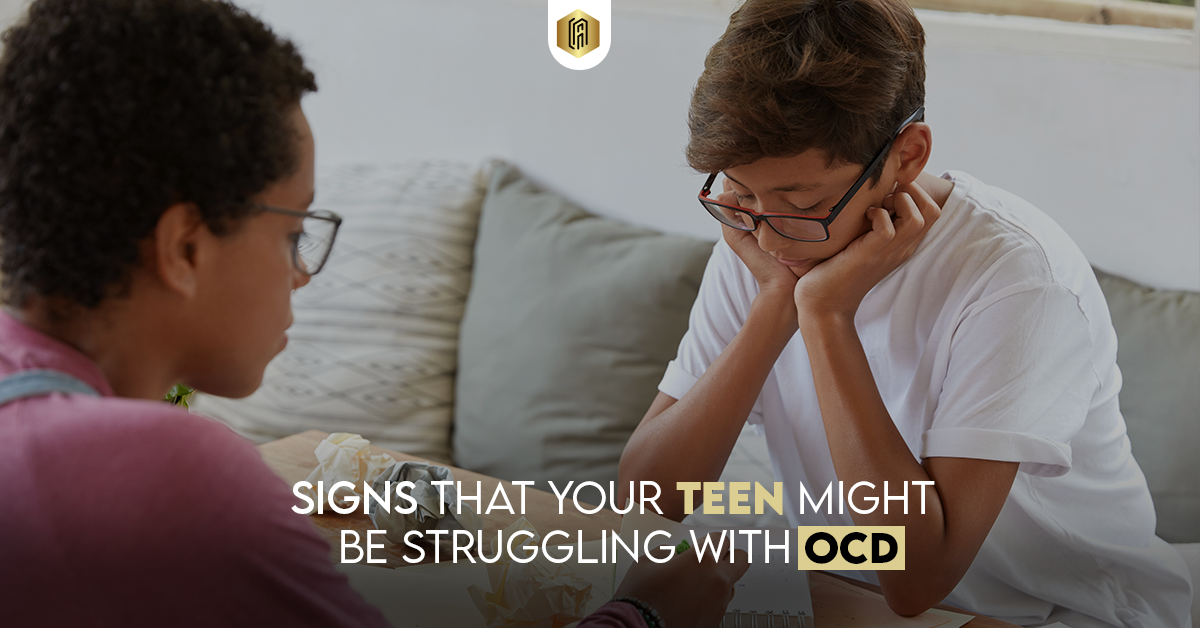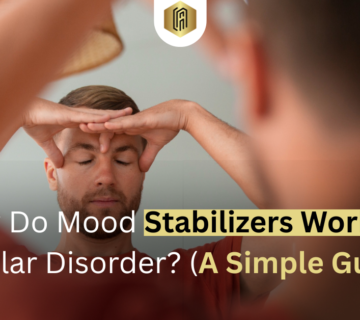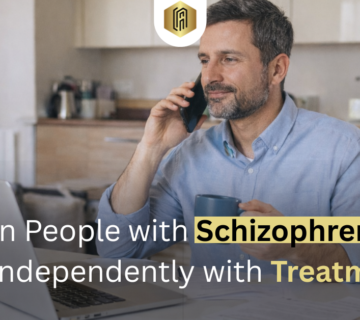Being a teenager is hard. It has new changes, pressures, and emotions. Obsessive-Compulsive Disorder (OCD) is a mental illness that can start in the teenage years, sometimes linked to stress or shyness.
At Ascension Psychiatric Services, we know that recognizing early signs is vital. Anthony J. Hall, a psychiatric provider, specializes in diagnosing and treating OCD in teens.
Below, we will outline signs that your teen might be struggling with OCD and how early help can help.
What Is OCD?
OCD stands for Obsessive-Compulsive Disorder. It is a mental health condition where a person experiences unwanted thoughts (obsessions) and feels the need to perform specific actions repeatedly (compulsions).
Many individuals believe that OCD is all about just cleaning or organizing more. However, for a teenager, it is deeper than that. OCD may even transform schooling, doing homework, and even having fun with friends into an agitating ordeal.
Ascension Psychiatric Services offers professional treatment to enable adolescents and families to learn about and treat OCD.
Why It’s Hard to Notice in Teens
Teenagers go through so many changes, mood swings, indecisiveness, and emotional swings. This is the reason why OCD among adolescents may be difficult to detect.
Their actions may appear to be typical teen behavior. However, if they happen often, cause distress, or disrupt, they might point to a more serious issue.
The first step to healing may be the identification of these signs at an early age and collaboration with a mental health expert, such as Anthony J. Hall.
Common Signs That Your Teen Might Be Struggling with OCD
Behavioral Signs of OCD in Teens
-
Repetitive behaviors
If your teen is constantly repeating actions, that’s a major red flag.
-
Excessive hand washing
Washing hands more than necessary, often until the skin is raw or red, is one of the most visible signs.
-
Constant checking of locks, lights, or homework
They may check if the doors are locked five or ten times before leaving. Or go over their homework repeatedly, not because it’s wrong, but because it’s not “perfect.”
-
Rituals before sleeping or leaving the house
Some teens follow their own “rules.” Some people have to touch doorknobs three times or arrange their pillows in a certain way. If they don’t, they get anxious.
-
Repeating actions a specific number of times
Adolescents often redo tasks. It includes brushing their hair, turning lights on and off, or repeating a phrase until it feels right.
Emotional and Psychological Signs
-
Intense anxiety or fear without a clear cause
Panic about things that are mostly small or unreal, like having germs on their pencils or fearing something might happen to their pets, is all little worries for your teenagers.
-
Guilt or shame over “bad” thoughts
OCD commonly entails intrusive thoughts, obnoxious images, or thoughts. Teens can consider themselves to be bad due to such thoughts, although they can never do such acts.
-
Sudden anger or frustration when rituals are interrupted
If you interrupt their routine, they will get out of control and lose their temper irrationally. This happens because they get nervous when they are unable to satisfy a compulsion.
How OCD Affects School and Social Life
OCD can greatly interfere with a teen’s success in education and social situations. They might:
- Take longer to complete assignments
- Avoid social gatherings due to fears or rituals
- Feel embarrassed or isolated
- Experience symptoms of depression or anxiety
We know the impacts of OCD on all aspects of life at Ascension Psychiatric Services. This is the reason we design individualized and evidence-based treatment plans.
What You Can Do as a Parent
Seeing your teen in distress is tough. Your support can help them heal.
Here’s what can help:
- Listen without judgment. Allow them to share their feelings.
- Stay calm. Their actions may seem odd, but they feel real to them.
- Avoid forcing them to stop compulsions suddenly. This can raise their anxiety.
- Seek professional help. OCD won’t just disappear, but it can be managed.
- Learn together. Understanding OCD as a family fosters empathy and support.
Is OCD Treatable?
OCD might come across as a tough challenge, yet there is a ray of hope. Treatments such as Cognitive Behavioral Therapy (CBT) and Exposure and Response Prevention (ERP) work really well. In some cases, medication like SSRIs is also effective.
Anthony J. Hall, MSN, APRN, PMHNP-BC, brings years of experience helping teens overcome OCD.
At Ascension Psychiatric Services, he provides caring and personalized support for families in Atlanta, GA, and Washington, DC. He helps teens rebuild their confidence and find peace of mind.
Final Thoughts
If your teen is showing signs of OCD, know that it’s not your fault, and they’re not broken. OCD is an actual disorder that several teenagers deal with. With the appropriate support, conditions can improve.
Don’t delay. Reach out to Ascension Psychiatric Services. Our team can guide your teen toward recovery. With proper care, healing is possible and within reach.
Schedule an appointment today.
If you’re in Atlanta, GA, or Washington, DC, and suspect OCD in your teen, visit Ascension Psychiatric Services.
FAQs
Q: Is it possible that OCD someday disappears on its own in childhood?
Not usually. Symptoms of OCD can reduce at times, but they might recur with even more intensity unless they are treated.
Q: Is OCD the effect of poor parenting?
Nope. OCD is not a matter of your fault. It is a complicated disorder of biological and environmental nature.
Q: Does OCD become worse when you are under stress?
Yes. Stress may cause or exacerbate symptoms of OCD in adolescents.






No comment